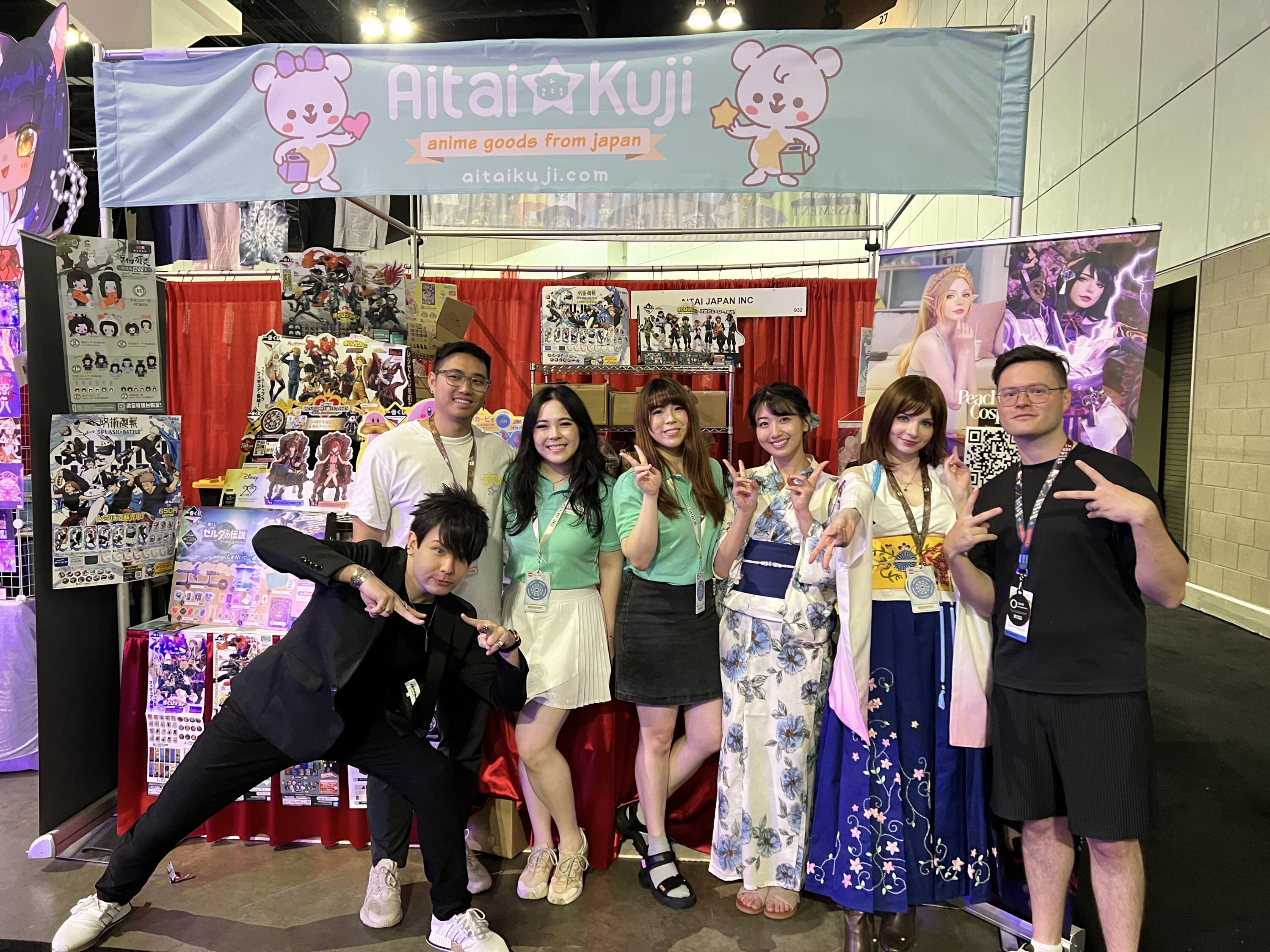Los Angeles-native Audrey Lamsam remembers the first time she sold a high-value item on eBay. Back in 2005, she made $1,000 from her mother’s old Louis Vuitton bag and used that money to fund a trip to Europe. Fifteen years on and she is now living in Japan as the CEO and founder of Aitai Japan Inc, the company that owns the e-commerce store, Aitai Kuji (stylized as Aitai☆Kuji).
Humble Beginnings for Aitai Japan
“I’ve been buying and selling stuff online since high school,” says Lamsam. “I’d buy random things I liked, such as anime items from blog sites like LiveJournal or online stores. And when I no longer used them, I’d resell them to someone who wanted them. It was very common to do this within the community.”
In today’s era where online shopping is the norm and tools like Shopify, Facebook Marketplace and Mercari exist, it feels like a no-brainer to exchange cash for goods over the internet with strangers. But Lamsam’s beginnings occurred when many of these transactions were peer-to-peer and trust-based.
Her familiarity with early internet shopping protocol helped her turn a side hustle into a business that now employs almost 20 staff members. Armed with a college background in economics, media and Japanese, she also had the business acumen and skills to start her own company here. On top of all that, was her love of anime and gaming.
Translating Anime and Video Games
“Prior to moving to Japan, one of my hobbies was reading Japanese news and updates on anime and video games I liked and translating them for English-speaking fandoms,” says Lamsam.
It is something she continues to do today, focusing on popular franchises such as Final Fantasy and Kingdom Hearts.
“After relocating to Japan, I noticed there was a huge market for anime merchandise domestically that people abroad would also want as well,” she says. “As a member of the fandom, the communities I was part of placed a lot of trust in me. And I wanted to help people out.”
In her first few years, Lamsam juggled her day job in online marketing with her blog translating news while also buying and selling merchandise. As her platform grew — Lamsam now has over 120,000 followers on X, formerly known as Twitter — so did the demand for merchandise. This was particularly time-consuming.

The Evolution of Aitai Kuji
The turning point for her side hustle came when she began to earn more from it than from the salary she received from her day job, which she quit after some soul-searching and risk assessment. The process of opening her own company and self-sponsoring her visa then began. This, she says, was rather difficult. Just like starting a business in any other part of the world, she needed to know why she was doing it, and that the income was going to be sustainable.
Being fluent in Japanese meant Lamsam didn’t need to rely on an intermediary. She could consult directly with real estate agents and lawyers for her business. These days, Aitai Kuji attracts a diverse consumer base from all over the world due to the mainstream success of anime.
While in the past, niche franchises such as Free! and Yuri on Ice were their top sellers, there’s now a lot of demand for Shonen anime items such as Chainsaw Man plushies and Demon Slayer key chains. Lamsam predicts that 2024 might see gaming merchandise taking off more than anime with the release of potential huge hits like Final Fantasy VII Rebirth and the recently announced Legend of Zelda live action movie.
Creating a Happy Environment
A business related to otaku subculture isn’t all just fun and games, though. Some of the challenges Lamsam faced are in the same vein as any other startup.
“The shift from hiring friends to hiring actual people for my company was a challenge. We started off with just me and then my sister. She was my first full-time hire. When you’re building a business on your own, you don’t have time to interview people. You just need people to start doing things immediately,” says Lamsam.
“I highly recommend entrepreneurs to invest in human resources early on,” she continues. “People issues can be tough to navigate and, ultimately, you want to create a happy environment where the team feels motivated and are working towards the same goal.”
For Lamsam, business success isn’t just about sales figures. What’s important to her is to make an impact and hear that her customers had a positive experience.
“I’ve been invited to several gaming and anime events as media, and official staff sometimes recognize me and tell me they’ve seen my content, whether it be in a news article, company newsletter or elsewhere. They tell me I provide information about their IPs that maybe even they didn’t know about. These types of comments are very rewarding because they show that, hopefully, the content I talk about does add value to the experience.
“Aitai Kuji usually has a booth each year at Anime Expo in Los Angeles as well as other conventions too,” adds Lamsam. “I’ve been invited to various conventions as a guest, such as earlier this year at Katsucon 2023. Each time is a great experience as we are able to build a closer relationship with existing and new customers, as well as with fans themselves.”
Sexist Attitudes
The unfortunate reality of the industry is that it is very male-oriented. As a result, sexist attitudes are still rampant.
“On occasion, some business partners are surprised when they find out I’m the founder and that I’m also not Japanese,” says Lamsam. “Sometimes new clients prefer to speak to male staff. I don’t get bothered by this. It’s not my job to change their mindset. As a foreigner, there are also business nuances that transcend language.
“Foreigners tend to make the mistake of being very forward. In my experience, Japanese businesspeople prefer to take their time to discuss and consider all possibilities. The best thing you can do is learn to adapt and keep your main goal in sight. For me, that’s providing value to my customers.”
The Meaning of Aitai Kuji
The name Aitai Kuji comes from Lamsam’s own online username “Aitaikimochi,” which in turn is the name of a 2000s song by J-Rock band, Glay. “Aitai” means “to want to meet” in Japanese, and the official company name, Aitai Japan, represents the community’s desire to “meet” Japan and for the business to connect people with Japan through its goods and services. Next year marks the company’s ninth fiscal year of operations.
“There’s still so much more we can do,” says Lamsam. “We’ve begun manufacturing products in the past few years and collaborating with official companies to develop exclusive items. Maybe one day we’ll even live up to our name and have kuji games of our own.”
Check out more from Aitai Japan below:









